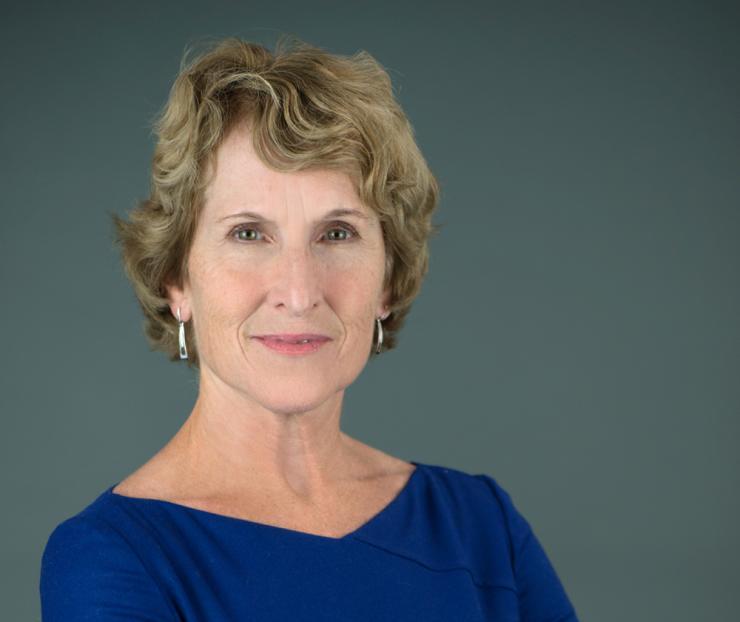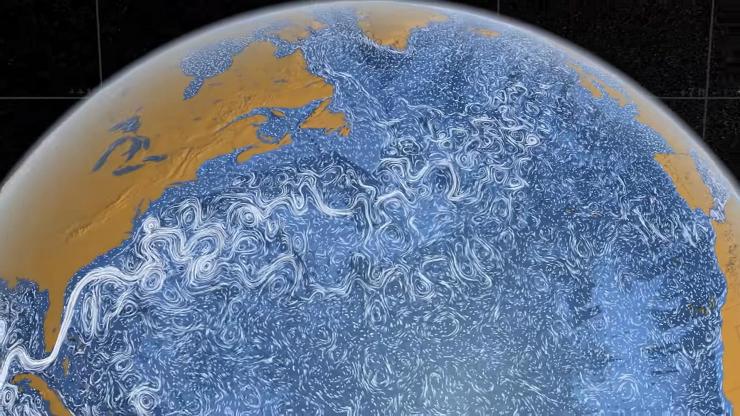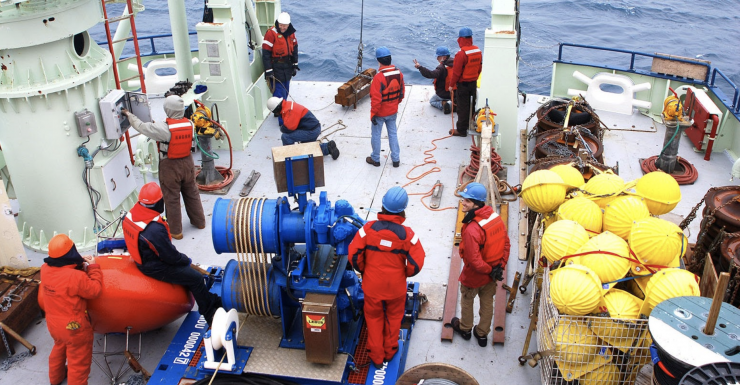Susan Lozier Appointed to Climate Security Roundtable
Apr 22, 2022 — Atlanta, GA

The drive to find solutions for the biggest environmental issues on the planet often leads to our oceans, and most of the answers to these challenges will only be realized by engaging the energy and ideas from all backgrounds and all perspectives. Georgia Tech's Susan Lozier is a global leader in physical oceanography, dean of the College of Sciences, president of the American Geophysical Union, and leads the NSF-funded OSNAP: Overturning in the Subpolar North Atlantic Program. Her hope when facing the daunting task of reversing climate change lies in the commitment and dedication she sees in a diversifying pool of early career scientists. Learn more: c.gatech.edu/ocean-solutions
At the direction of Congress, the National Academies of Sciences, Engineering, and Medicine is establishing a Climate Security Roundtable convening experts from academia, the private sector, and civil society to provide support to the Climate Security Advisory Council (CSAC).
CSAC is a joint partnership between the U.S. Intelligence Community and the Federal Science Community and seeks to better understand and anticipate the ways climate change affects U.S. national security interests.
The new Climate Security Roundtable will support CSAC in anticipating, preparing, and ultimately preventing climate security crises from escalating into national security challenges and threats.
Susan Lozier, dean and Betsy Middleton and John Clark Sutherland Chair of the College of Sciences at Georgia Tech, will serve a three-year term on the Roundtable, which is aimed at facilitating dialogue and collaboration on:
-
Emerging, abrupt, and understudied risks associated with the changing climate that could have implications for national security.
-
Exchange of data, knowledge, and expertise on the topic of climate security, gaps in these exchanges, and viable solutions to address gaps.
-
Earth system observing, modeling, research, collection, and analytic priorities relevant to improving understanding and to helping anticipate, prepare for, and prevent climate security crises.
-
Understanding human behavior in the context of social, political, economic, and other stresses related to climate change.
-
Indicators and early warnings of risks to national security from changing climate.
-
Capacity building across the intelligence community.
-
Other assistance, resources, or capabilities that the sponsoring entities deem necessary with respect to supporting the duties and responsibilities of the Climate Security Advisory Council.
Dean Lozier is joined by three dozen fellow committee members, including Georgia Tech alumnus Vernon R. Morris (Ph.D., Geophysical Sciences, '91), a professor of Chemistry and Environmental Sciences and the director of the School of Mathematical and Natural Sciences in the New College of Interdisciplinary Arts and Sciences at Arizona State University.
Climate Research and Solutions
Lozier, a physical oceanographer who also serves as president of the American Geophysical Union and as a professor in the School of Earth and Atmospheric Sciences, is also the recipient of the 2022 Henry Stommel Research Medal from the American Meteorological Society (AMS) for her “theoretical, observational, modeling contributions, and leadership in significantly improving our understanding of Atlantic Ocean circulation.”
The distinction is the highest honor that AMS gives to an oceanographer, and is named in memoriam of Henry Stommel (1920-1992), a major contributor to the field of physical oceanography.
For nearly a decade, Lozier has led a National Sciences Foundation (NSF) funded project to better understand the issue, serving as a U.S. principal investigator for the Overturning in the Subpolar North Atlantic Program (OSNAP) — an international ocean observing system that provides a continuous record of water temperature, salinity, speed, and other vital signs swirling between eastern Canada, Greenland, and the Scottish Shelf.
Since summer 2014, OSNAP’s necklace of oceanic instruments — along with a network of glider surveys and subsurface floats — have gathered data that is analyzed against additional and comparative data from satellites, surface wind fields, and other arrays in the Atlantic meridional overturning circulation, or AMOC.
Three years ago, Lozier and team surfaced a major unexpected driver of AMOC’s overturning and variability: warm, salty, shallow waters between Greenland and Scotland. Those findings have helped improve global climate models — and came in stark contrast to a previous consensus that pointed to the Labrador Sea, between Canada and Greenland, as the system’s primary source of subpolar overturning and variability.
Although AMOC flows vary over time, the United Nations Intergovernmental Panel on Climate Change projects an overall slowdown this century due to reduced deep convection in the North Atlantic, pressing the need for proactive and collaborative research and solutions.
Lozier sees the Climate Security Roundtable as a new partner in this space. “Between the Intelligence agencies, the State Department, and others, there’s both an understanding of the impact of climate change — and also active awareness of what we need to do to mitigate climate change,” Lozier says.


Jess Hunt-Ralston
Director of Communications
College of Sciences at Georgia Tech




